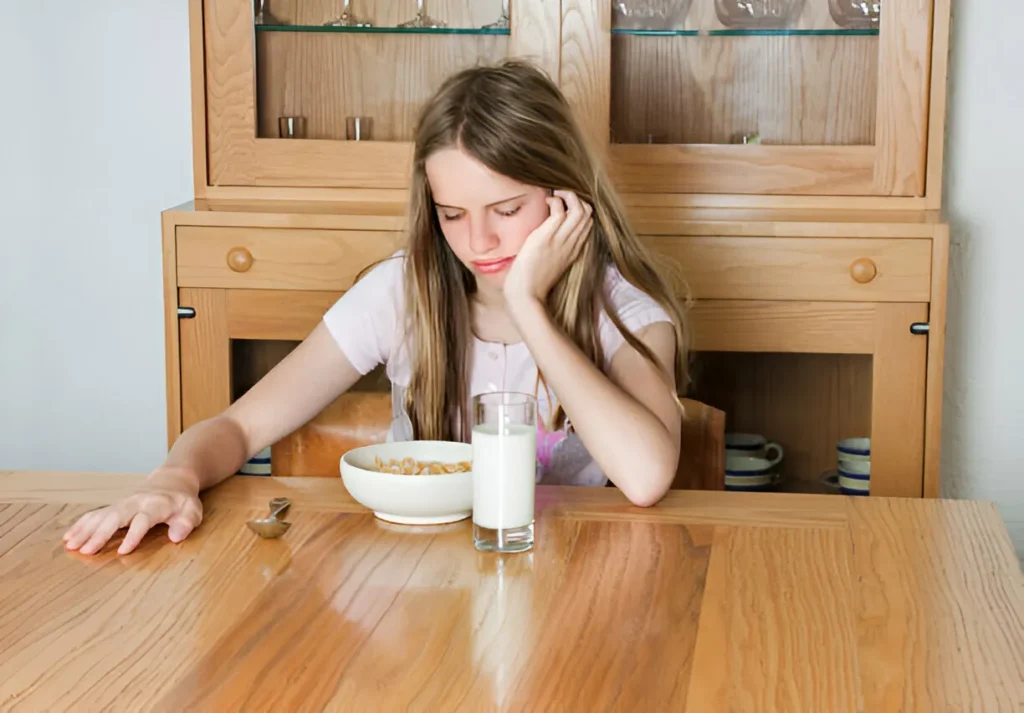It’s believed that every 62 minutes a person around the world dies as a result of an eating disorder and it is, in fact, the third most common chronic illness.
For many, they can start at an early age and of the 1.25 million people in the UK living with an eating disorder and a disproportionate number of those are under the age of 25.
Eating disorders can range significantly, but there are options out there to get your child help, from binge eating disorder treatment to anorexia helplines and therapy. But, of course, recognising your child has an eating disorder is the first step, and there are signs if you are worried…
Drastic Changes in Eating Habits
One of the earliest indicators of an eating disorder is a significant change in eating patterns. This could involve extreme dieting, skipping meals, avoiding entire food groups, or displaying unusual eating rituals such as cutting food into tiny pieces or taking excessive time to eat.
You might also notice that your child becomes secretive about their eating, avoiding family meals or claiming to have already eaten. If they frequently make excuses to avoid food or suddenly express a strong aversion to previously enjoyed meals, it could be a red flag.
Obsession with Weight, Food, and Body Image
An unhealthy preoccupation with weight and body shape is a common characteristic of eating disorders. Your child may start weighing themselves excessively, spending a lot of time looking in the mirror, or expressing dissatisfaction with their appearance.
You may also hear them making negative comments about their weight, even if they appear to be at a healthy size. They might frequently talk about dieting, calorie counting, or express guilt after eating. If this obsession begins to interfere with their daily life, it could be a warning sign.
Noticeable Weight Loss or Fluctuations
Significant and unexplained weight loss is a major indicator of conditions like anorexia nervosa. On the other hand, fluctuations in weight—whether rapid loss or gain—could suggest binge eating disorder or bulimia.
However, weight changes alone do not always indicate an eating disorder, as individuals can struggle with disordered eating at any weight. If weight changes are accompanied by secretive behaviour around food or extreme exercise habits, it’s important to seek professional advice.
Excessive Exercise or Compensatory Behaviours
While exercise is generally a positive habit, excessive or compulsive exercise can be a sign of an eating disorder. Your child may feel the need to exercise excessively after eating or display distress if they are unable to work out.
In cases of bulimia nervosa, individuals might engage in compensatory behaviours such as self-induced vomiting, misuse of laxatives, or fasting after eating. If your child frequently excuses themselves after meals or seems preoccupied with “making up” for eating, it could indicate an issue.
Emotional and Behavioural Changes
Eating disorders don’t just affect physical health—they take a significant toll on mental and emotional wellbeing. Your child may become more withdrawn, irritable, or anxious, particularly around mealtimes.
They may also exhibit signs of depression, low self-esteem, or increased sensitivity to comments about their appearance or eating habits. A decline in academic performance, social withdrawal, or increased secrecy about daily activities can also be indicators that something is wrong.
